The project EU4OceanObs, entitled “international ocean governance: EU component to global ocean observation”, aims to catalyse and strengthen essential partnerships between European and international infrastructures and programmes across the ocean observing value chain to increase ocean observing, data sharing, and use of ocean data for societal benefit. Within this context, the project directly facilitates the European action coordination of the G7 Future of the Seas and Ocean Initiative (G7 FSOI) and Group on Earth Observation’s Blue Planet Initiative (GEO Blue Planet) – two major partnerships working towards coordinated, fit-for-purpose and sustained global ocean observations. The project has also been expanded to provide European-to-international engagement support for the UN Decade of Ocean Science for Sustainable Development (Ocean Decade), and since Nov 2024 is a Decade Implementing Partner.
Leveraging and promoting European ocean observing activities within this international landscape, the project provides a unique cross-coordination mechanism to harmonise European actions and ensure evolving priorities are considered at the international level.





